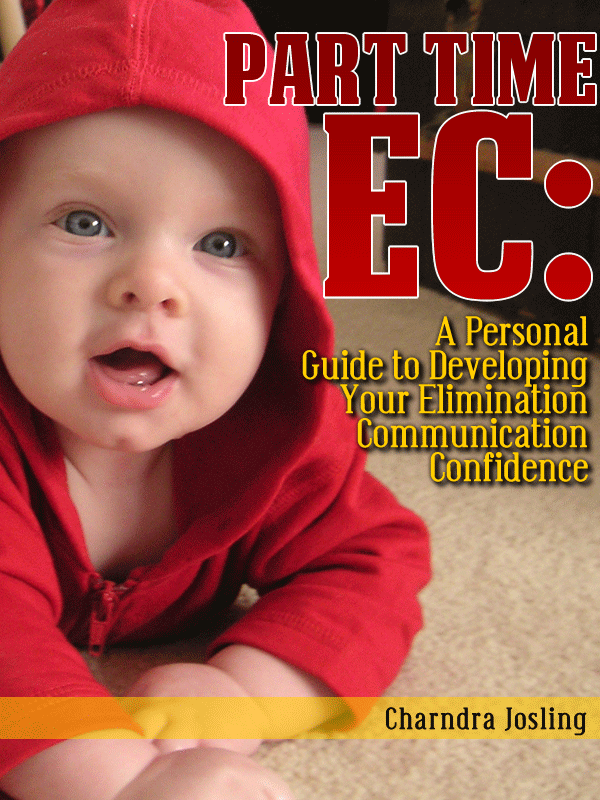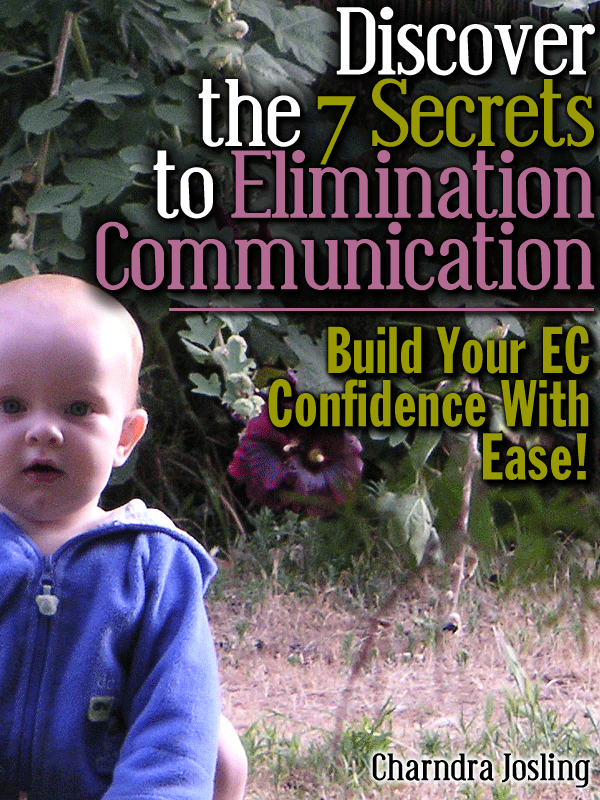Adventures in Part Time Baby Pottying: Laurie Boucke
Adventures in Part Time Baby Pottying: Laurie Boucke
Discover Valuable Insights in The Stories of Parents Practicing EC! How do they combine their busy modern lives with being part time nappy or diaper free?
What can your learn from someone who has a similar story to yours?
Laurie and her 3rd son, in the United States…
Laurie Boucke has been teaching and researching infant pottying since 1979 when she first learned about it and used it with her third son. She lives in Colorado, speaks several languages and has travelled and lived abroad for half her life, thus affording her the opportunity to observe the customs of different societies. She wrote the very first book on EC in 1991 and has authored eight books in total, including Infant Potty Training: A Gentle and Primeval Method Adapted to Modern Living. She is co-producer of the DVD Potty Whispering, writes articles for medical journals with a team of doctors, and is co-founder of the International Board for the Study, Research and Promotion of Assisted Infant Toilet Training. Laurie also works as a court reporter for the deaf and encourages sign language as a means of communication with all infants including hearing babies.
“Some of the caregivers were willing to potty him while others didn’t take the time and put him in diapers. In short, there were times where I was away when no one pottied him. Upon my return, we had no problem picking up where we had left off. It did not jeopardize his progress to stop for a few days. While I would not recommend anyone purposefully stopping for no particular reason, it is good to know that a break does not automatically spell doom.”
We started in 1979 when our third son was just 3 months old. At that time, infant pottying was unheard of in Western countries, including Holland where we raised our children.
 A friend from India showed me how to hold and cue my son at potty time. Although I was a sceptic at first, it only took a few days for me to become an enthusiast.
A friend from India showed me how to hold and cue my son at potty time. Although I was a sceptic at first, it only took a few days for me to become an enthusiast.
I used the technique she demonstrated, slightly modifying and adapting it to a Western lifestyle, and found it worked far better for us than conventional diaper-to-potty-training. We always used cloth diapers (and then later training pants) in between potty visits.
Our son didn’t give signals to pee so we relied on timing, patterns and intuition. His poos were easy to catch as his BM body language was clear. After about 9 months, he rarely needed a diaper, day or night, and just wore training pants. He stayed dry during most of the day at 18 months and was finished with all aspects of potty training at 25 months.
We used cloth diapers, then around 9 months moved on to training pants. We never left him bare-bottomed. He never wore disposable diapers at all as we felt they were bad for the environment. In fact, I used in total just one disposable diaper which had been sent to me as a promotion. I used it in an unconventional way by simply holding my baby over the open disposable at a time when we could not get to a restroom.
It was not so much my baby that changed. It was ME who changed by noticing and responding to his natural patterns. FromInfant Potty Training, “The body language that I first noticed as a signal was something I had often observed in the past few months but had not comprehended and had thus ignored. About midway through his early morning feeding, he would begin to twist and grunt a little, with a slightly contorted facial expression. I had assumed it was just gas but now realized that this was also his body language telling me he needed to poo. I soon noticed there was a pattern to this and was able to put this pattern to good use.”
I felt an extra connection with him that I had not experienced with his older siblings. The mutual teamwork was a joy.
It also enabled his father and brothers to interact with him in a new way by paying attention, tuning in and celebrating ‘catches’.
We felt confident within a few days of starting due to (a) his clear BM body language, (b) my paying attention to his timing and patterns for pees, and (c) our son’s responsiveness to our cues. He was able to “release” on cue whenever our timing was right. This was exciting and quite a pleasant surprise with a 3-month-old.
We did not strive to catch every elimination as we knew this would be unrealistic and stressful, but we did potty him every occasion we were able to and everywhere we went. I often improvised toilet places when out and about. If we were too busy to potty, we changed him asap.
He had his share of wet training pants, but we didn’t let this bother us – just changed him and offered him the potty when we thought he’d next need it. He went through a phase of “holding it” until his pants were on, a common behaviour during toilet learning until a child learns to put the cart before the horse.
I think it’s essential to stay relaxed and avoid feelings of guilt about not being perfect (“been there, done that”). There will be times where you are too busy or ill to potty. I found that missing some pottytunities was not harmful. For example, when travelling, I sometimes left him home with a trusted caregiver. From Infant Potty Training, “Some of the caregivers were willing to potty him while others didn’t take the time and put him in diapers. In short, there were times where I was away when no one pottied him. Upon my return, we had no problem picking up where we had left off. It did not jeopardize his progress to stop for a few days. While I would not recommend anyone purposefully stopping for no particular reason, it is good to know that a break does not automatically spell doom.”
Our costs were minimal as we only used cloth diapers and training pants and managed with a relatively small quantity of each.
The process was fun, fun, fun for the whole family. We had no time goals and just let our son develop at his natural pace along with our gentle assistance.
Also significant is that our ec’ed son never wet his bed at night whereas his brothers were bed-wetters until they were 10 years old.
He never had diaper rash. We were also pleased with the environmental benefits.
Use the three C’s = stay calm, confident and communicative. Enjoy the process. Avoid the no-no’s such as no time goals, no perfectionism, no punishment, no obsessing, etc. Always remember that this is not an all-or-nothing thing and that part-time pottying works just fine as long as there is generally some consistency to it.
If I had another baby, I would instigate two things that were not at my disposal last time. I would start earlier and I would use sign language.
We much preferred IPT to the conventional means we had used with our first two. There was far less mess and starting early made toilet learning much easier since our son never had to unlearn habits such as using a diaper.
Laurie.
More links:
http://www.white-boucke.com/IPTstuff.html Infant Potty Training books and DVD
http://www.pottywhisperer.com Potty Whisperer
http://www.TimL.com/ipt Infant Potty Training Fundamentals (translated into many languages)
http://aitt.evassist.it The International Board for the Study, Research and Promotion of Assisted Infant Toilet Training (list of medical journal articles, supportive paediatricians and more)
Back to Adventures in Elimination Communication List…
Discover More about My Elimination Communication eBook:
Part Time EC: A Personal Guide to Developing Your Elimination Communication Confidence…




